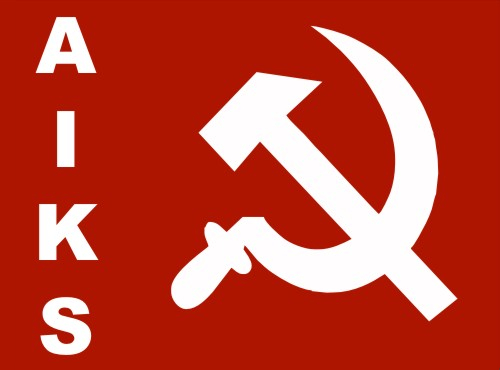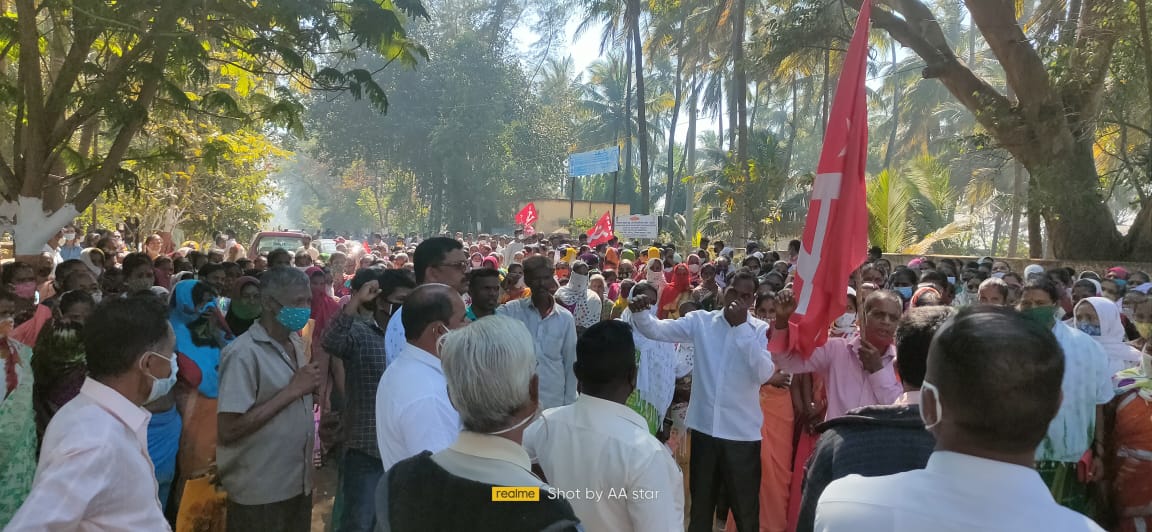AIKS to PM: Heed Farmers’ Voices & Protect Interests at WTO, 12th MC at Geneva
To
Shri Narendra Modi,
Hon’ble Prime Minister of India
The Twelfth Ministerial Conference (MC12) of the World Trade Organisation (WTO) is scheduled to take place in Geneva from the 12th to 15th of June 2022. The Conference is being held in a context when the farmers of our country who were reeling under an acute agrarian crisis have also been hit hard by the COVID-19 Pandemic. We are at a crucial juncture wherein incessant increase in costs of fertiliser, fuel and other inputs has led to a spike in costs of production for farmers on the one hand and unremunerative prices for their produce on the other is pushing them into a debt trap. It is extremely difficult to meet the food security needs of millions of Indians if the farmers do not get prices commensurate to increase in the costs of production. In times of a global food crisis as well as increased prices of food, this could have serious portents for food security in our country. This has to condition our response at the WTO Ministerial.
AIKS has consistently been cautioning from 1991 onwards that the trade liberalisation policies, removal of farm and food subsidies, scrapping of import duties as well as quantitative restrictions will push the poor Indian farmers into an unequal competition with highly subsidised large capitalist farmers of the developed countries. The Free Trade Agreements and price crash for Indian farmers due to dumping of cheap products from outside resulting in suicides by farmers in distress is our bitter experience. The National Crime Records Bureau figures point to about 4 lakh farm suicides since 1995; it is an open secret that the figures are much higher. AIKS sticks to our position that the entire gamut of neoliberal economic policies needs to be reversed and India should keep out agriculture from the WTO as well as unequal Free Trade Agreements.
The Ministerial will discuss very important issues related to agriculture and food security. Legally binding results arising out of the negotiations could be detrimental to millions of Indian farmers and it is the imperative that the India Government listens to farmers’ voices and articulates their interests at the WTO. It may be remembered that farmers of our country had a prolonged united struggle that extended beyond a year with great sacrifice and martyrdom of over 700 farmers against 3 Farm Acts brought at the behest of the WTO and demanding legislation to ensure assured procurement of crops at remunerative Minimum Support Price (MSP) of C2+50%. The issue of public procurement and stockholding were also issues that the farmers’ struggle had brought to the centre-stage in the context of the Government moves to withdraw from public stockholding, decontrol and allow agribusinesses to take-over. AIKS expresses serious concern that issues of vital importance to us like the Permanent Solution on Public Stockholding (PSH) for food and Special Safeguard Mechanism (SSM) are again being pushed out and issues of interest to developed countries are being pushed in.
AIKS and other organisations representing the millions of farmers in India have been making the demand for keeping agriculture out of the WTO because unfair and unequal rules have been imposed on developing countries like ours while favouring the rich nations and agribusinesses. Even as the rich nations are continuing with massive subsidies to their farmers and corporations under extra entitlements and the Green Box, subsidies given to Indian sugar, dairy, wheat, rice, pulses etc., have been challenged by them in the WTO. AIKS believes that it is a blatant onslaught on the sovereign right of India to decide on its economic policy and create a conducive atmosphere for farmers to produce more, earn decent livelihood and feed the nation. The price support envisaged with public procurement at a Minimum Support Price with public stockholding to meet food security needs is indispensable for protecting farmers, ensuring costs are covered and food security concerns are addressed. The Agreement on Agriculture of the WTO mandates that such subsidies cannot exceed 10% of the value of production per product; it however calculates price support based on 1986-88 prices which defies logic and too detached from actual prices on the ground today which are manifold higher. The Peace Clause at the Bali Ministerial was to ensure that such subsidies can be continued without being sued but it has not been a smooth sailing when India twice tried to use it for exceeding subsidy limits on rice. In the absence of a just solution in favour of using price support for protecting public stockholding programmes, livelihoods of our farmers and food security of the people of India will be severely compromised.
India had earlier played a role of rallying the developing countries for collectively protecting their interests. It is reported that the G33 group of developing countries, the African Group and the African, Caribbean and Pacific Group of countries have submitted a joint proposal on a permanent solution suggesting that the 1986-88 reference price should be revised and linked to current market prices or be adjusted for inflation. It also asks that the calculation of such subsidies be based on actual procurement and not all eligible production. This will expose the claim of developed countries on our subsidies being high and prove that the level of subsidies Indian farmers get is actually very low compared to what each farmer gets in rich countries. This is not acceptable to the rich nations and a group of farm-exporting countries who are even unwilling to discuss the new proposal. Permanent solution on the Public Stockholding issue has also been blocked by them though it was to be agreed by 2017. The Special Safety Mechanism has also been pushed to the future despite the mandate to agree on it. SSM would allow the government to raise import duties if a sudden increase in import takes place. This would protect farmers from price crashes due to dumping and high western subsidies have generated volatility, uncertainty and unfair competition for Indian farmers. India has to play a role with redoubled energy to rally all developing countries to ensure that a permanent solution is achieved.
Even as the richer nations are blocking any permanent solution on issues concerning farmers in the poor, developing nations, they are only conspiring to increase their market power. They are reported to be planning for a Trade and Food Security Declaration while stalling a permanent solution. Without addressing the issue of unfair rules of the AoA that allows massive subsidies by rich nations while attacking meagre support given to farmers in developing countries like India you will only be a willing party to tightening the noose around our farmers’ necks.
AIKS calls upon the Indian government to stay firm on the demand for the permanent solution on PSH in the 12th Ministerial. It should also ask for the SSM and challenge the unfair subsidies given by the rich nations. These interim measures should be accompanied by an independent assessment on the cost-benefit of our participation in the WTO and eventual withdrawal from the same.
We hope you will take into consideration our position and articulate the interests of farmers and the masses of India at the 12th Ministerial of the WTO.
Ashok Dhawale Hannan Mollah
President General Secretary




